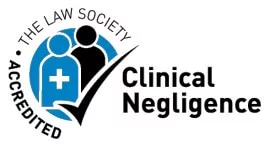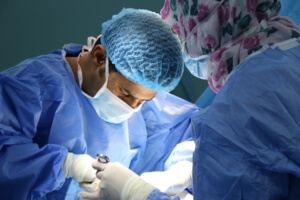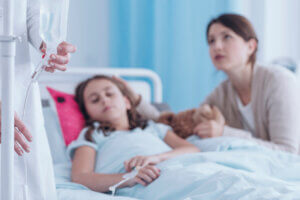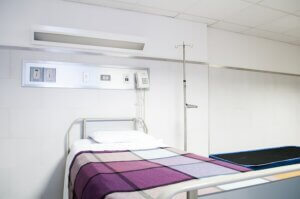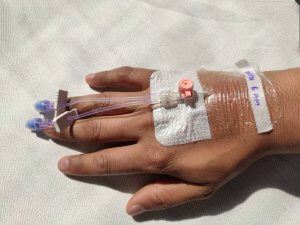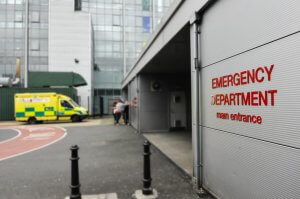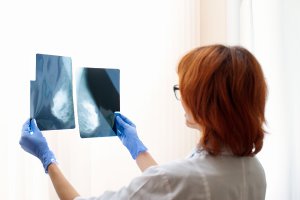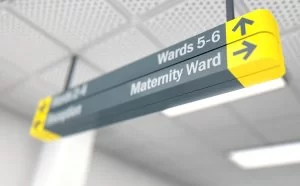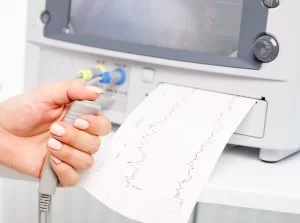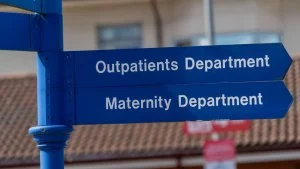Care Home Neglect
Care Home Neglect Claims
We expect the best possible care for our loved one and sadly this is not always the case. Our lawyers help clients whose family members have suffered medical negligence in a nursing home. Read on for information on the types of accidents we can help with and for more about our expert lawyers.
“Small but very effective and experienced team so every client benefits from the personal touch but also highly skilled litigation know-how. Capability of the team means they can handle all aspects of very complex cases as well as straightforward matters.”
“Osbornes Law is an established firm which handles a breadth of complex and high-value clinical negligence matters.”
With an ageing population, more and more of us are being looked after in residential care and nursing homes. But according to a report by the Care Quality Commission, the healthcare needs of society’s most vulnerable people are being neglected.
Over 350,000 elderly people are living in 10,000 care homes in England. Each of them will have particular health issues and need access to medical and other support, such as mental health, continence and tissue health, physiotherapy, diet and nutrition services. Approximately 40% of care home residents suffer from dementia, and the average lifespan from admission is only two years.
So this is a challenging environment, and the provision of services between private and state-run care homes and the NHS can be patchy, to say the least.
Care homes owe the same duty as hospitals, hotels, or other institutions that look after residents. But they must do more to meet that duty because of the vulnerability of those they care for and their wide range of needs. If they fail in that duty, serious injury or even death can result.
The following particular issues need to be identified and assessed by all care homes:
Control of Infection
Elderly people in care and nursing homes are particularly vulnerable to infection, which carries a high mortality risk. So the premises, especially the kitchens and bathrooms, must be scrupulously clean. Strict hygiene policies must be in place to deal with food production and infection control. Staff and residents are at risk from waste and blood that is inadequately disposed of, contaminated food and medical equipment, legionella from poorly maintained water and air conditioning systems, and inadequately controlled infection in an individual patient.
Abuse
Sadly there is malpractice in some care homes, and the suspicion is that it is more widespread than is acknowledged. Since the Winterbourne View abuse scandal, there have been a number of prosecutions and reports of abuse, where those employed to look after vulnerable residents have been guilty of neglect and sometimes physical assaults. If a resident is abused in this way, the care home will usually be liable for the actions of its employees. Evidence is key, and care home records, witness testimony and video and photographic evidence may all play a part in uncovering the malpractice.
Avoidable Accidents
Elderly residents in care and residential homes can be frail and suffering from illness or disease, so it is no surprise that there are accidental injuries from trips, slips, falls, and other incidents. Such incidents are very common among elderly people who are living at home. But there is a distinction between those accidents on the one hand and avoidable injuries on the other.
For instance, an elderly person at home is very likely to check the temperature of the bath water before getting into it at home. If bathing a vulnerable resident or patient is the responsibility of the care home, they should have assessed the risk of burns and scalds and ensured that there are proper safety precautions in place. Namely, thermostatic mixing valves on the taps and care workers trained to test the water before bathing a patient. There have been several reported cases of patients being seriously injured or even killed by being bathed in scalding hot bath water.
Transfers and equipment
Another common situation involving the risk of avoidable injury involves transfers. If a resident or patient cannot transfer independently, for instance, from bed to chair, their needs must be assessed and a proper system put in place. This may be a protocol for two carers to assist or involve using a board or hoist. If the patient is left to their own devices or if the assistance or equipment are inadequate then there is a high risk of injury, which will be caused by a negligent failure on the part of the care home.
Equipment must be properly used, and the care providers must be trained in its safe use. A tragic example of where this can go wrong is the case, where an elderly woman was asphyxiated in her bed between her mattress and the incorrectly fitted safety rail. Safety rails are commonplace in care homes to prevent falls, but the staff weren’t properly trained in this case. The care homeowners were prosecuted by the HSE and fined £180,000.
Care Home Claims for Patient Falls
Falls in the elderly can be devastating, causing fractures which can lead to impairment and even death. While medical conditions such as confusion or hypoglycaemia can predispose patients to fall, simple precautionary nursing measures can protect vulnerable people from coming to harm through falling. For example, regular monitoring, moving personal items to be within easy reach and providing nonslip socks.
Hospital Acquired Infections (HAIs)
HAIs are infections that are picked up while in a hospital or other healthcare settings such as nursing homes. The worst cases can lead directly to death. Straightforward good nursing practice can reduce the risk of HAIs running rampant and causing harm. Basic hand hygiene, good wound care, sterile techniques and proper medical equipment cleaning all contribute to safer patient care.
Medication Errors
Medication errors are a significant problem in the NHS. Around 237 million medication errors occur in the NHS in England every year. Avoidable adverse drug reactions contribute to between 2,000 and 22,000 deaths annually. These errors and consequent medical negligence claims cost the NHS at least £98.5 million annually, although this could be a gross underestimation. Pharmacists, doctors and other healthcare professionals are all responsible for various medication errors.
Nurses are responsible for the majority of medication administrations in a clinical setting. There are many reasons why a nurse may cause a medication error: similar drug names, poor labelling and distraction when giving out medication.
According to the National Diabetes Inpatient audit, ‘2 in every five people with diabetes on insulin experience an error related to administering the drug while in hospital’.medication errors by nurses can also occur in the community. A study of people who received palliative care at home was published in the Palliative Medicine Journal.1 It was found that of 1072 patient safety reports over a five-year period, 613 were related to medication error. Around two-thirds of these incidents caused harm to patients, and 129 suffered serious harm, which led to either hospital admission or early death.
Nursing Care Home Claims
Like other healthcare professionals, nurses do not go to work to cause harm to the people to whom they are providing care, be it in a birthing suite, a neonatal ward or on the phone to a 999 caller. However, errors do happen, and sometimes these errors cause serious harm or even death. If you think you or a loved one has been the victim of nursing care negligence, you may be entitled to claim compensation. To find out more, please get in contact with Osbornes Law. We have a team of medical law specialists who can advise you if you have a claim and will guide you through the process.
Our Promise to You
- We will review your potential care home claims by advising you on the NHS complaints procedure or other alternative procedures if your case does not relate to NHS care and treatment.
- Our care home claims solicitors do not charge a fee for our time reviewing your case.
- Our care home claims lawyers can assist you with any issues that you may have regarding the complaints procedure or that you encounter in obtaining copies of your medical records.
- We will advise you of the course of action in respect of your case
FAQs
What constitutes negligence in a care home?
When the standard of care in the home falls below what is reasonably expected and this results in harm to a resident, it may be considered as negligence. This can include not providing adequate medical treatment, failure to prevent falls, neglecting the basic needs of residents, and abuse by staff members.
Who can make a care home negligence claim?
Claims can be made by:
- The resident themselves
- A family member or a solicitor if the resident lacks the capacity to claim.
- The next of kin if negligence has led to the death of a resident
Learn more about fatal medical negligence claims.
What is the time limit for making a claim?
Generally, you have three years from the date of the negligence or from when you became aware of it to make a claim. If the resident lacks mental capacity, there may be exceptions to this time limit.
What evidence is needed to support a claim?
Evidence includes:
- Medical records detailing injuries
- Witness statements from staff, other residents and visitors
- Correspondence with the nursing home regarding concern about standards of care
- Photos of injuries or unsafe conditions
- Expert opinions on the standard of care provided
How long does the claims process take?
The time it takes to process a claim varies depending on the complexity of the case, and whether the care home accepts liability. Straightforward cases can settle in months, while complex cases can take years, especially if you have to go to court to settle the claim.
Can I claim on behalf of a deceased family member?
Yes, if a loved one died due to negligence, you may be entitled to claim compensation on their behalf.
Will making a claim affect the care my loved one receives?
Care homes are legally prohibited from treating residents differently because a complaint or claim has been made. Your loved one has the right to receive the same standard of care regardless of any claim or complaint.
Speak to a specialist Medical Negligence Solicitor
Call us to speak with a lawyer 020 7485 8811
Email us Send us an email and we’ll get back to you
Small but very effective and experienced team so every client benefits from the personal touch but also highly skilled litigation know-how. Capability of the team means they can handle all aspects of very complex cases as well as straightforward matters.
Osbornes is a very respected firm in the marketplace.
They handle really complex cases very well
The clinical negligence team are knowledgeable and professional in their approach and demonstrate a high level of skill in litigation work.
Osbornes Law offers experience in obstetric and fatal claims as well as niche cauda equina cases.
Osbornes Law is an established firm which handles a breadth of complex and high-value clinical negligence matters.
Osbornes has a skilled team of solicitors advising clients on a wide range of clinical negligence matters.
Hard working, approachable, good knowledge of clinical negligence and clients’ specific conditions
A joy to work with and always 100% client focused at all times.
The clinical negligence team at Osbornes is much lauded for its ability to ‘represent the diverse range of London-based clients
“The team is very quick and efficient in responding."
"Obsbornes Law is always client-focused and works tirelessly to obtain the best outcomes for clients."
‘They are ambitious for their clients and expect high standards from all who work with them.’
"Osbornes somehow combine the accessibility of a local firm, with the professional standards of a national or city outfit."
"Osbornes, is described as having ‘superb judgement and a medical knowledge that is second to none."
Stephanie has developed a particularly strong reputation for her handling of birth injury claims, as well as cases concerning surgical negligence and delays in surgery.
"An excellent firm which achieves fantastic outcomes for clients."
"Stephanie Prior takes on complex cases and gets excellent results. She has a background in medicine which serves her clients well and is a realistic but tough litigator."
"Stephanie Prior is hugely dedicated, adored by her clients, tenacious, efficient and extremely knowledgeable."
"Stephanie Prior is very good with troubled clients and is easily able to make them feel at ease."
"Stephanie shows sensitivity and deals with things in an understanding way."
Osbornes provides a very intimate and personal client service which is increasingly rare in this sector.
The lawyers in the team are highly experienced and will drive cases very hard on behalf of their clients.
"Stephanie Prior has a realistic attitude to the complexities of the cases. She wins the trust of her clients and goes the extra mile to ensure they get the best outcomes."
"Stephanie Prior... manages a varied caseload, including obstetric claims, child and adult brain injury cases and fatal and non-fatal spinal cord injury cases."
"Stephanie is experienced, knowledgeable of all aspects of clinical negligence work, and strategic in running cases."
"An exceptional outfit. They take on difficult cases, fight hard and win."
"The team were extremely professional in putting my needs first. There was a joined-up approach to catering for the client, and all lawyers involved were briefed and constructive."
Stephanie Prior is always very professional and kind. Highly recommended.
Quite simply excellent, with a highly competent and well-rounded team. They understand complex medical litigation and have been our lifesavers, and we will always owe them our immense gratitude.
Medical Negligence News & InsightsVIEW ALL
- 12.5.2025
Complaints Against Suspended Surgeon Ms Kuldeep Stohr
Ms Kuldeep Stohr, orthopaedic surgeon at Addenbrooke’s Hospital suspended In February 2025, Cambridge University Hospitals NHS Foundation Trust (CUH) confirmed...
Read more - 4.4.2025
Time To Move On From Physician Associates?
BMA raises concerns over patient safety: the risks of Physician and Anaesthesia Associates in the NHS The British Medical Association (...
Read more - 13.3.2025
Addenbrooke’s Hospital Complaints
Review finds harm to children by surgeon at Addenbrooke’s Hospital An independent review by Cambridge University Hospitals NHS Foundation...
Read more - 19.9.2024
Report highlights failings in maternity care
The Care Quality Commission (CQC) has recently carried out a national review of 131 maternity inspections between 2022 and 2024, finding that failures...
Read more - 30.7.2024
What Is the Role Of a Physician Associate?
What does the Position of Physician Associate Mean for the NHS? There are many different jobs within the NHS, each...
Read more - 11.1.2024
New UK Supreme Court Ruling regarding Secondary Victims...
The Supreme Court has today, on the 11th January 2024, upheld the Court of Appeal’s order to dismiss the claims...
Read more - 11.1.2024
Secondary Victim Claims
Secondary victims in clinical negligence cases What is a secondary victim in clinical negligence cases? Most compensation claims are concerned...
Read more - 12.12.2023
NHS Compensation Payouts Guide
What Are NHS Compensation Payouts? In the UK, the National Health Service delivers the vast majority of healthcare services. When...
Read more - 31.8.2023
Can you sue the NHS for waiting times?
The NHS is facing an unprecedented challenge with 7.47 million people waiting for routine treatments. This crisis impacts everyone, from those...
Read more - 31.8.2023
Hyponatraemia – Symptoms, Causes & Negligence
What is hyponatraemia? Hyponatraemia is a condition where sodium levels fall below a certain level, which can be dangerous. All...
Read more - 10.8.2023
Ambulance Delays Affecting Rapid Patient Treatment
Failure to Meet Ambulance Response Targets In 2017, the Secretary of State for Health accepted the new ambulance performance standards recommended...
Read more - 26.7.2023
Private Healthcare Negligence
Can you claim medical negligence against a private hospital? Yes – it can be a little more complicated than bringing a...
Read more - 9.6.2023
Early Notification Scheme – is it helping or failing...
What is the Early Notification Scheme? The NHS Early Notification Scheme (“ENS”) has reached its sixth anniversary. Established in April 2017,...
Read more - 23.3.2023
Private Pregnancy Scans and Substandard Care
In the news, it has been reported that private clinics that offer pregnancy scans to women are not meeting the...
Read more - 14.2.2023
The risk of extravasation injuries during iron infusion...
Many patients with low iron, particularly during pregnancy or postnatally, may be advised they need an iron infusion such as...
Read more - 9.11.2022
Delayed transfer to Accident & Emergency causing harm
The Healthcare Safety Investigation Branch (HSIB) has identified that patients may come at risk of harm whilst waiting in ambulances...
Read more - 9.11.2022
Breast cancer screening mammograms and negligence
Breast cancer screening has improved significantly in the UK due to research bettering the understanding of this terrible disease, which...
Read more - 21.9.2022
Are maternity services safe? – Part 2
In April last year I wrote a piece about government setting up a taskforce to look into why there are...
Read more - 8.9.2022
Poor interpretation of CTG can result in stillbirth...
Poor interpretation of a Cardiotocograph, more commonly known as a CTG, is a leading cause of stillbirth and brain injuries...
Read more - 14.7.2022
Insulin overdose in hospitals due to limited staff...
A century ago, insulin was first used to treat a 14-year-old boy dying of type 1 diabetes. A hundred years later,...
Read more - 6.7.2022
NHS aims to reduce waiting times with Elective...
The NHS recently recorded their waiting list to be at 6.5 million, a record high. Much of this backlog is due...
Read more - 29.6.2022
Nottingham Maternity: Donna Ockenden to Chair Independent Inquiry
An interim report on the state of maternity services at Nottingham University Hospitals NHS Trust has just been released. However,...
Read more - 23.2.2022
Women from ethnic minorities experience worse maternity care
It has been reported today that the government has set up a new task force to look into why there...
Read more - 13.1.2022
Secondary Victim Claims
Court of Appeal Judgement on Secondary Victim Claims Judgment was today handed down by the Court of Appeal in the...
Read more
Our Medical Negligence Team View the whole team
Rob Aylott
 Partner
Partner
Personal Injury SolicitorsJodi Newton
 Partner
Partner
Medical NegligenceBen Posford
 Partner
Partner
Personal Injury SolicitorsLaura Swaine
 Partner
Partner
Personal Injury SolicitorsVictoria Ayton
 Paralegal
Paralegal
Medical NegligenceElline Demetriou
 Associate
Associate
Medical NegligenceHeidi Herlihy
 Paralegal
Paralegal
Medical NegligenceEmma Johnson
 Paralegal
Paralegal
Medical NegligenceNicholas Leahy
 Senior Associate
Senior Associate
Medical NegligenceAndreea Martin
 Paralegal
Paralegal
Medical NegligenceIsabelle Murphy
 Trainee Solicitor
Trainee Solicitor
Medical NegligenceShivam Raja
 Solicitor
Solicitor
Medical NegligenceJosie Robinson
 Senior Associate
Senior Associate
Medical NegligenceView the
whole team




